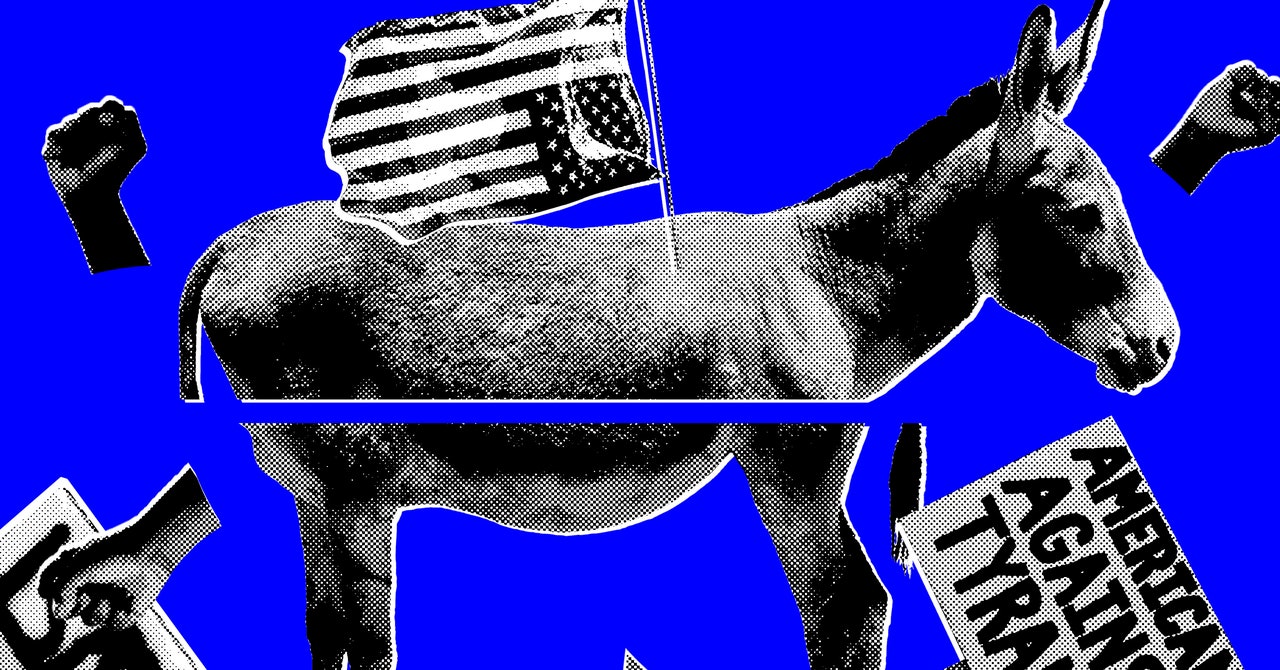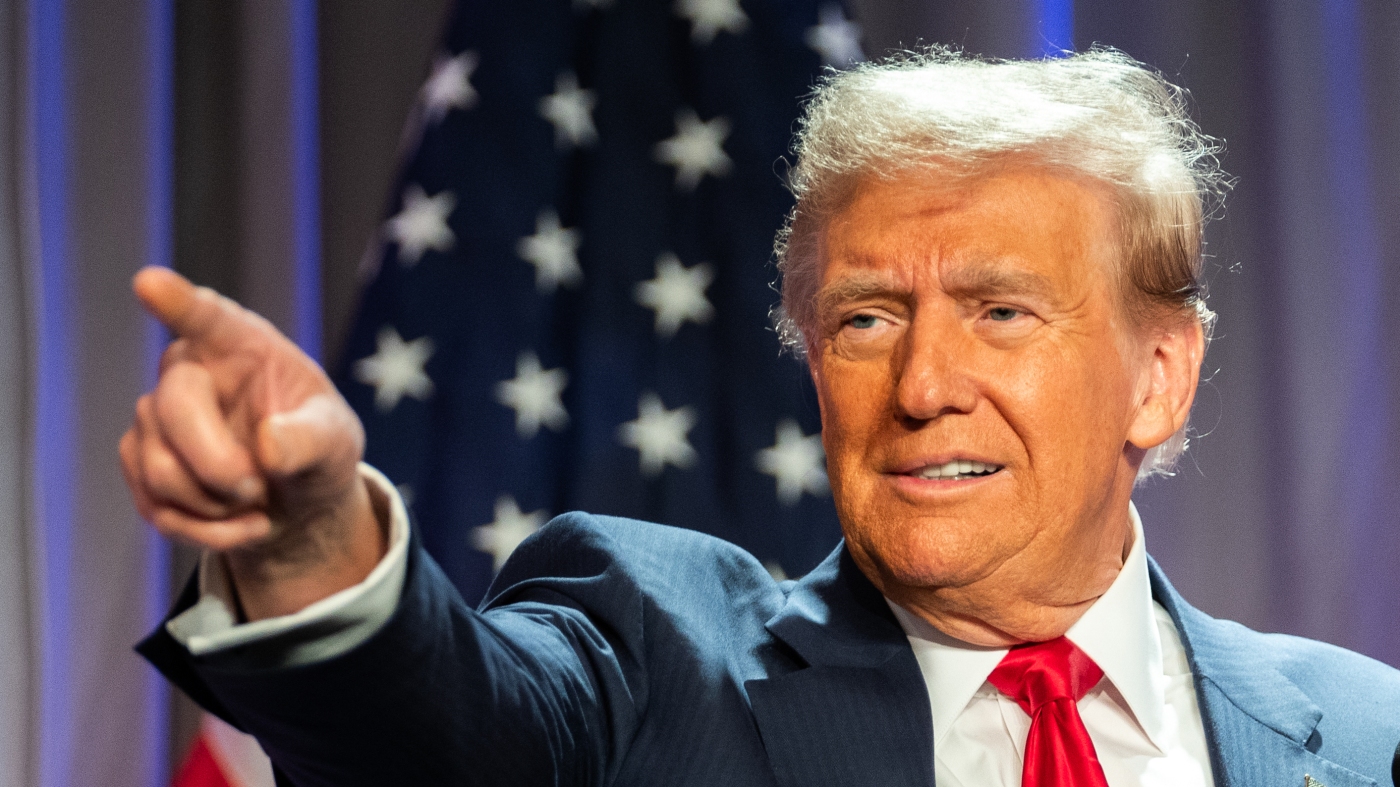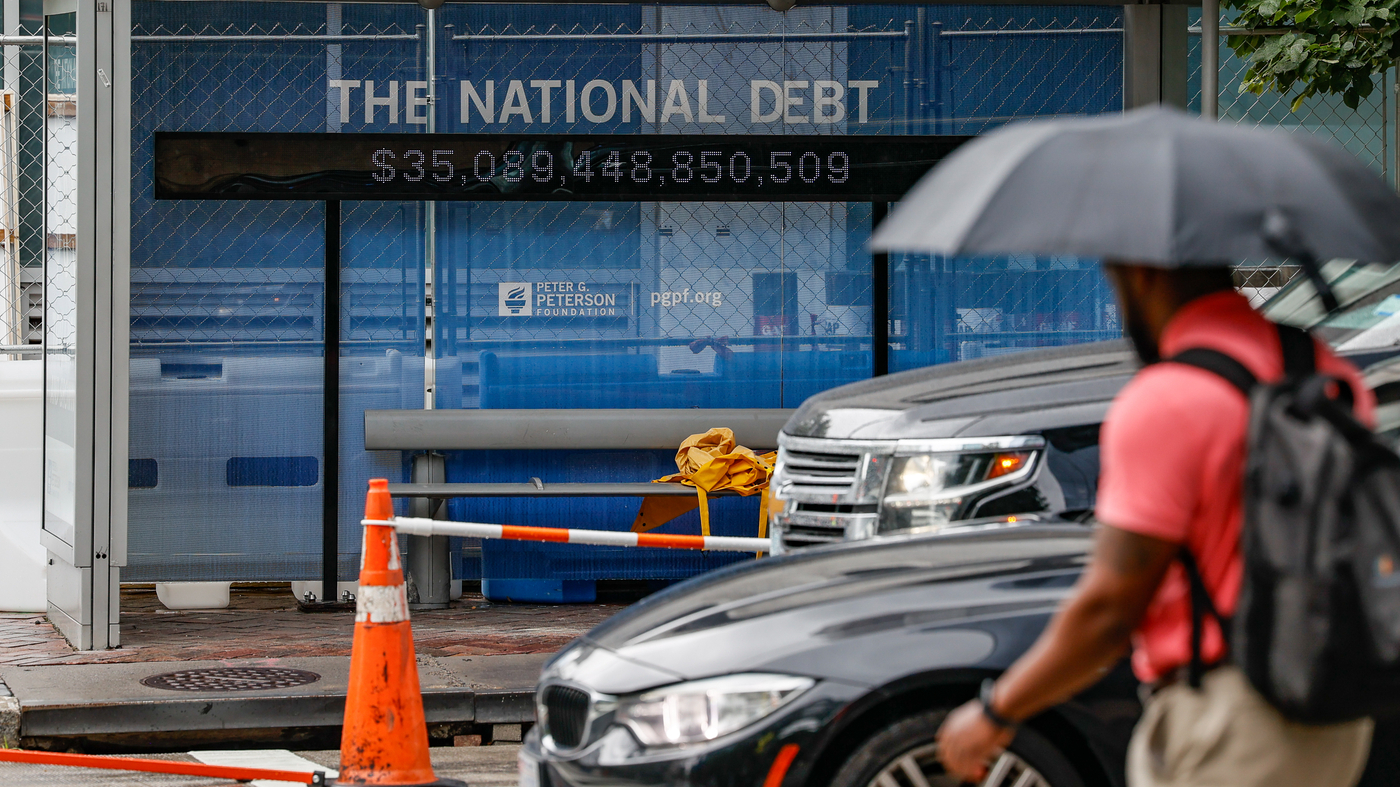
President-elect Donald Trump, seen right here on Nov. 13, has promised a spread of tax cuts. However these cuts include a value.
Allison Robbert/Getty Photos
conceal caption
toggle caption
Allison Robbert/Getty Photos
On the marketing campaign path, Donald Trump promised to place more cash again in Individuals’ pockets by reducing their taxes.


“My plan will massively minimize taxes for staff and small companies, and we could have no tax on ideas, no tax on extra time and no tax on Social Safety advantages,” Trump pledged at a rally in Raleigh, N.C., the day earlier than the election.
What is going to a second Trump presidency imply in your taxes? It may add as much as a decrease tax invoice, however it may additionally have drastic penalties for the nationwide finances.
Trump is prone to renew his large 2017 tax cuts
In 2017, Trump pushed by means of a serious tax overhaul referred to as the Tax Cuts and Jobs Act. Many of the particular person tax and property tax provisions will expire on the finish of subsequent 12 months, and Trump and the Republican-controlled Congress are broadly seen as prone to lengthen them. (There was additionally a giant minimize to the company tax charge, however that doesn’t expire.)
On the subject of your taxes, extending the 2017 legislation means preserving the established order. You most likely saved some cash in your taxes as a result of 2017 legislation, and that may proceed if the legislation’s provisions stay.
For a family making $60,000 to $100,000 a 12 months, these tax cuts imply conserving about $1,000 that might in any other case be due if these cuts expired, says Joseph Rosenberg, a senior fellow on the City-Brookings Tax Coverage Middle.
For these households making greater than one million {dollars}, it means lowering their taxes by about $70,000 on common.
However these cuts are pricey. Estimates have discovered that extending the 2017 legislation would enhance the nationwide debt by greater than $4 trillion over the following 10 years. And up to now, it is unclear how Trump and Republicans plan to pay for the extension of the tax cuts.

Trump congratulates then-Home Speaker Paul Ryan, R-Wis., throughout an occasion to have a good time Congress passing the Tax Cuts and Jobs Act with Sen. Mitch McConnell in 2017.
Chip Somodevilla/Getty Photos/Getty Photos North America
conceal caption
toggle caption
Chip Somodevilla/Getty Photos/Getty Photos North America
“No tax on ideas” sounds easy — however it may very well be messy
Trump’s marketing campaign promise of “no tax on ideas” made large headlines, however this provision would have an effect on only a small a part of the labor market — solely about 2.5% of all employment, in response to the Funds Lab at Yale College. And greater than a 3rd of tipped staff earn so little that they already do not pay federal revenue tax.
Particulars are scant on precisely how this proposal would work. One query is whether or not this exemption is just for revenue taxes or whether or not it will additionally apply to payroll taxes.
However eliminating tax on ideas may most likely result in some squirrelly results. For instance, say a tree trimmer normally fees $500 for his providers. Now, he would possibly say it prices $300 to trim the tree however that he expects a $200 tip — figuring out he will not be taxed on it. Tipping would possibly proliferate into providers the place it hasn’t been widespread earlier than.
Employers may additionally try and reclassify staff as tipped staff and drop their pay to the tipped minimal wage — for which the federal minimal is now $2.13 an hour.
Exempting ideas from being taxed would blow one other gap within the federal finances: It could add about $100 billion over 10 years.
Ending taxes on Social Safety advantages would damage Social Safety
Among the many tax cuts Trump promised is to exempt Social Safety advantages from being taxed.
For many present retirees, this proposal would haven’t any impact on their taxes.


That is as a result of solely about 40% of people that get Social Safety pay federal revenue taxes on it. (Paying this tax “normally occurs in case you have different substantial revenue along with your advantages,” in response to the Social Safety Administration.)
However the results of this modification can be big — and it will make issues worse for individuals who are nonetheless years away from drawing Social Safety. An enormous chunk of the taxes on Social Safety go straight into funding the Social Safety Belief Fund. So eliminating these taxes means lowering the cash for Social Safety.
Social Safety is already in danger. If nobody pays taxes on Social Safety advantages, that fund will run out earlier than it is already on monitor to do.













